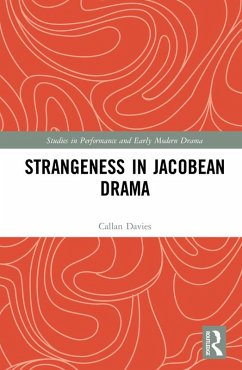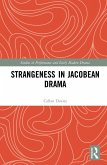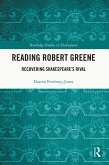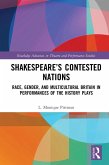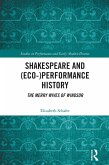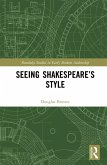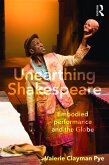Dieser Download kann aus rechtlichen Gründen nur mit Rechnungsadresse in A, B, BG, CY, CZ, D, DK, EW, E, FIN, F, GR, HR, H, IRL, I, LT, L, LR, M, NL, PL, P, R, S, SLO, SK ausgeliefert werden.
Book review by Goran Stanivukovic from Renaissance and Reformation 44.1
''Callan Davies's Strangeness in Jacobean Drama is an attempt to understand and think through some of the changes to performance, dramaturgy, and language that seem to have occurred in the late 1600s and early 1610s. As with most issues surrounding early modern drama, this change is commonly understood through the filter of Shakespeare. Davies's study is somewhat unique (or dare I say strange) in that it is organized around a single word and animated by a desire to understand that word. That being said, he notes that in the early modern era the word itself was poorly defined and was often stretched beyond what could be clearly articulated. I would recommend his discussion of rhetoric (86-91) to anyone who wants a brief but full exploration of this rich and complex early modern discipline. And really, anyone looking for an interesting and novel exploration of early Jacobean literature would do well to pick up Davies's fascinating work.''
Book Review by Eric Dunnum from Early Theatre 25.1 (2022)
Book review by Goran Stanivukovic from Renaissance and Reformation 44.1
''Callan Davies's Strangeness in Jacobean Drama is an attempt to understand and think through some of the changes to performance, dramaturgy, and language that seem to have occurred in the late 1600s and early 1610s. As with most issues surrounding early modern drama, this change is commonly understood through the filter of Shakespeare. Davies's study is somewhat unique (or dare I say strange) in that it is organized around a single word and animated by a desire to understand that word. That being said, he notes that in the early modern era the word itself was poorly defined and was often stretched beyond what could be clearly articulated. I would recommend his discussion of rhetoric (86-91) to anyone who wants a brief but full exploration of this rich and complex early modern discipline. And really, anyone looking for an interesting and novel exploration of early Jacobean literature would do well to pick up Davies's fascinating work.''
Book Review by Eric Dunnum from Early Theatre 25.1 (2022)

